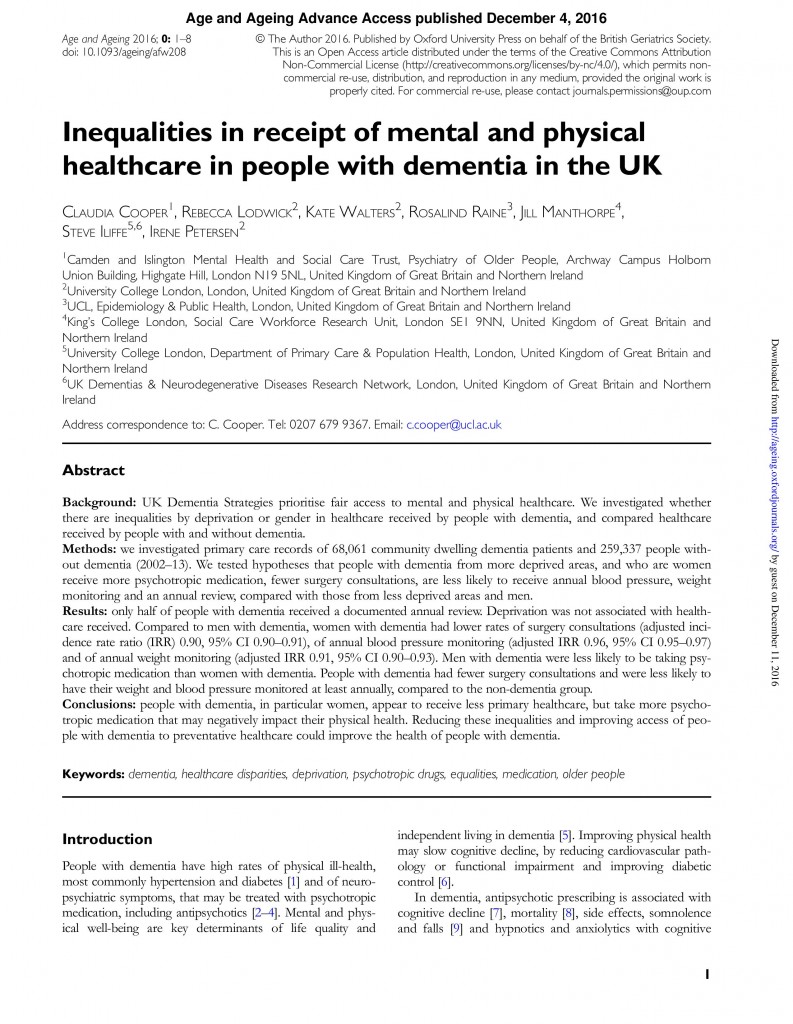 Claudia Cooper and Jill Manthorpe introduce their new article, which is open access in Age and Ageing. (726 words)
Claudia Cooper and Jill Manthorpe introduce their new article, which is open access in Age and Ageing. (726 words)
Women with dementia make fewer visits to the GP, receive less health monitoring and take more potentially harmful medication than men with dementia, our new research has found.
The study, published in Age and Ageing in early December, was funded by Dunhill Medical Trust. We found that only half of all people with dementia had a documented annual review even though GPs are offered financial incentives to carry these out. Women were at particular risk of staying on antipsychotic or sedative medication for longer. This might be because they have fewer GP appointments where their treatment can be reviewed. Continue reading